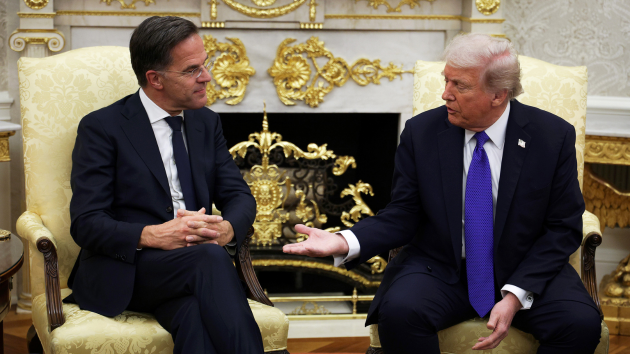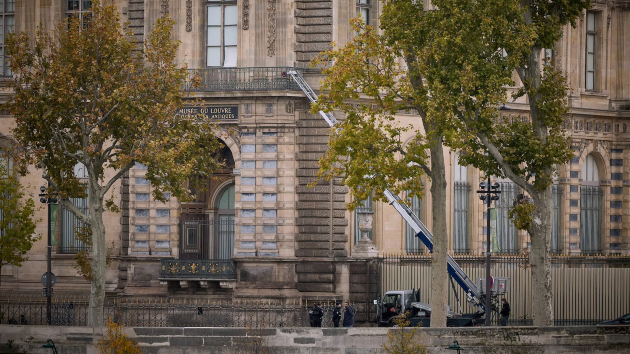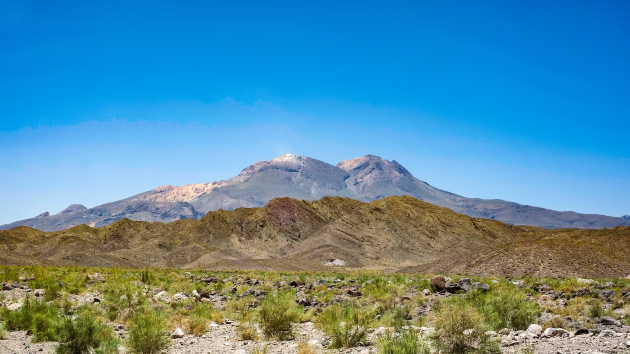Erdoğan slammed over poor quake infrastructure preparation, relief efforts
Written by ABC Audio ALL RIGHTS RESERVED on February 9, 2023

(NEW YORK) — As the death toll rises in Turkey and Syria following the massive earthquake that struck the region, some are criticizing the efforts by Turkish President Recep Tayyip Erdoğan to prepare for such a disaster and provide relief to the victims.
Asli Aydintaşbaş, a visiting fellow at the Brookings Institution who has covered Turkey as a journalist for years, spoke with ABC News’ Start Here Wednesday about that political situation.
START HERE: Asli, there’s no discernible cause of an earthquake, but you have said at least some of this tragedy might have been preventable. Why is that?
Asli Aydintaşbaş: Certainly, I mean, this was a big earthquake by any stretch of imagination. It was massive, not just the size of it, but the intensity in the geographical area. But you also have a situation that points to human error in several ways. [There is] shoddy construction, no doubt. Turkey is [in] an earthquake zone. It’s [in] a seismic zone, and it has had devastating earthquakes before.
In 1999, I was in Istanbul when an earthquake killed in that area altogether 17,000 people, and then Turkey passed the legislation for building codes, an earthquake legislation. But it turns out it had stopped really enforcing both the building codes and regulations, and its own preparedness in terms of earthquake relief and being prepared on an urban level.
There are other issues. Turkey has had a major overhaul of its governance system. President Erdoğan has pushed for a referendum several years ago, which barely passed, giving him massive powers. It is such that he decides on everything. The governance has become a lot more centralized.
START HERE: I was going to say, I imagine a lot of concerns could fall to any Turkish government, but you’re saying Erdoğan specifically in his capital, Ankara, he owns this?
Aydintaşbaş: Well, this system just does not work. Everything is decided in Ankara and only in Ankara and by one man, alone.
And it is also problematic because many municipalities are now opposition strongholds. They voted for opposition parties. So you have no coordination between, for example, Hatay.
There is no coordination between the mayor in Hatay who is entirely rebuffed by the government, which only wants to work with mayors that are from the governing party.
START HERE: You’re already seeing this tension between localities and the capital?
Aydintaşbaş: Oh yes, very much. Even on this day, on such a day of calamity where there should be national unity, we’ve seen President Erdogan call mayors from provinces that where, which are from his party in person, but not opposition mayors.
START HERE: Is the construction itself a concern in a country like Turkey? Is that where some of the frustrations [are] coming from? Like these buildings are literally structurally unsound.
Aydintaşbaş: People are increasingly asking that question in Turkey on social media. They seem angry at the fact that one building stands still and then the next one is down.
There’s clearly sloppy construction and officials that haven’t bothered to enforce existing legislation and guidelines, which are pretty solid.
START HERE: What I was about to say, the burgeoning economy of Turkey seems important there. That there is so much economic might and yet like coming from Turkey, this is a place where like things are happening, [and] people are building.
Aydintaşbaş: There was a real clear decision pronounced outright that this would be a construction-based growth model, and president believes it’s the crown jewel of the economy.
It’s bad quality growth.
It’s like saying, I’m going to feed my kid…chocolate, because, who doesn’t like chocolate? It helps you grow too, but it’s just not a healthy kind of growth. If you build your economic model on construction, you’re not going to have people who are opening factories or invest in [the] tech sector. It’s as simple as that.
[The] second issue that people have is because everything is so centralized. Relief efforts and search-and-rescue operations are also very centralized. The government didn’t want a huge, strong civil society after the failed coup of 2016.
And what they want is a government NGO, [a] federal search-and-rescue operation to do everything.
And as a result, they are stretched, overstretched. They have not gotten to many parts of the affected area, including towns like…Elbistan and Hatay. So many places [where] the first 24 hours were critical.
If you speak Turkish and you follow Turks on social media, there are people who are holding their kids’ hand as he’s dying. Just today I heard about a friend’s friend who was talking to his father…who’s in his 80s but under the rubble, still alive for 24 hours and they couldn’t get anyone for relief effort.
START HERE: You sound in your voice pained by this, even though you’re thousands of miles away.
Aydintaşbaş: In Turkey, we knew this and our major earthquake was coming. This is not, uh, this is not a surprise. We pay earthquake taxes. Every Turkish citizen has a certain amount of money earmarked for earthquake. Where is that money? What is it being used?
START HERE: Yeah. And your observation that there were buildings that stood tall here and there were lots then that just absolutely crumpled right next to those buildings.
Copyright © 2023, ABC Audio. All rights reserved.
 KVSP
KVSP 




